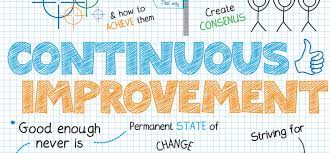Lowering Stress: Strategies for a Calmer Life
Stress has become an all-too-familiar part of modern life. From work pressures to personal responsibilities, it can often feel like we are constantly juggling multiple demands. However, chronic stress can take a toll on our physical and mental well-being, making it crucial to find effective strategies to lower stress levels and achieve a calmer life.
Here are some practical tips to help you reduce stress and find balance:
- Prioritize Self-Care: Taking care of yourself should be a top priority. Make time for activities that bring you joy and relaxation, such as exercise, reading, meditation, or spending time in nature. Engaging in self-care activities regularly can help recharge your batteries and provide a much-needed break from daily stressors.
- Practice Mindfulness: Mindfulness involves being fully present in the current moment without judgment. It allows you to cultivate awareness of your thoughts, emotions, and physical sensations. By practicing mindfulness through techniques like deep breathing exercises or meditation, you can train your mind to focus on the present moment rather than getting caught up in worries about the past or future.
- Establish Healthy Boundaries: Learning to say “no” when necessary is essential for managing stress levels effectively. It’s okay to set boundaries and prioritize your own well-being. Avoid taking on more responsibilities than you can handle and delegate tasks when possible. Remember that it’s not selfish to prioritize self-care; it’s necessary for maintaining a healthy balance in life.
- Regular Exercise: Engaging in physical activity has numerous benefits for both your physical and mental health. Exercise releases endorphins, which are natural mood boosters that help reduce stress levels. Find an exercise routine that suits your preferences and make it a regular part of your schedule.
- Connect with Others: Strong social connections have been shown to reduce stress levels significantly. Make time for meaningful interactions with friends, family, or loved ones. Share your thoughts and feelings with trusted individuals who can provide support and perspective. Sometimes, simply talking about your stressors can help alleviate their weight.
- Practice Time Management: Feeling overwhelmed by a never-ending to-do list can contribute to stress. Take control of your schedule by prioritizing tasks, breaking them down into manageable steps, and setting realistic deadlines. By managing your time effectively, you can reduce the pressure and create a sense of accomplishment.
- Get Sufficient Sleep: Adequate sleep is crucial for managing stress levels effectively. Make sure you establish a consistent sleep routine and create a relaxing environment in your bedroom. Avoid stimulating activities before bedtime and limit exposure to electronic devices that can interfere with quality sleep.
Remember, everyone’s journey to reducing stress is unique. Experiment with different strategies to find what works best for you. It’s important to be patient with yourself and understand that lowering stress takes time and practice.
By implementing these strategies into your daily life, you can gradually reduce stress levels and create a calmer, more balanced existence. Prioritize self-care, practice mindfulness, establish healthy boundaries, engage in regular exercise, nurture social connections, manage your time effectively, and get sufficient sleep – all essential steps toward achieving a less stressful life.
5 Commonly Asked Questions About Lowering Stress Levels
- How can I reduce my stress levels?
- What are some effective stress management techniques?
- How can I better cope with stress?
- What are the signs of excessive stress?
- What lifestyle changes can help lower my stress levels?
How can I reduce my stress levels?
Reducing stress levels is a personal journey, and what works for one person may not work for another. However, here are some general strategies that can help you reduce stress:
- Identify the Source: Start by identifying the main sources of your stress. Is it work-related, personal relationships, financial pressures, or something else? Understanding the root causes can help you address them more effectively.
- Practice Relaxation Techniques: Incorporate relaxation techniques into your daily routine. Deep breathing exercises, progressive muscle relaxation, and guided imagery can help calm your mind and body.
- Exercise Regularly: Physical activity releases endorphins, which are natural mood boosters. Find an exercise you enjoy and make it a regular part of your routine to reduce stress levels.
- Prioritize Self-Care: Make time for activities that bring you joy and relaxation. Engage in hobbies, practice self-care rituals like taking baths or reading a book, or spend time in nature to recharge and rejuvenate.
- Practice Mindfulness: Mindfulness involves being fully present in the current moment without judgment. By practicing mindfulness through meditation or simply paying attention to your thoughts and sensations without getting carried away by them, you can reduce stress and increase overall well-being.
- Set Boundaries: Learn to say “no” when necessary and establish healthy boundaries in your personal and professional life. Prioritize self-care and avoid taking on more responsibilities than you can handle.
- Seek Support: Reach out to friends, family, or support groups when you need someone to talk to or seek advice from. Sometimes sharing your thoughts and feelings with others can provide new perspectives and alleviate stress.
- Time Management: Effective time management can help reduce feelings of overwhelm. Prioritize tasks based on importance and urgency, break them down into smaller manageable steps, and set realistic deadlines.
- Get Enough Sleep: Adequate sleep is crucial for managing stress levels. Establish a consistent sleep routine, create a relaxing sleep environment, and avoid stimulating activities before bedtime.
- Limit Stressors: Identify stressors in your life that you have control over and take steps to minimize or eliminate them. This could involve setting boundaries with toxic relationships, reducing exposure to negative news or social media, or simplifying your schedule.
Remember, finding the right strategies to reduce stress may take time and experimentation. Be patient with yourself and be open to trying different approaches until you find what works best for you.
What are some effective stress management techniques?
Effective stress management techniques can vary from person to person, as what works for one individual may not work for another. However, here are some widely recognized techniques that have been found to be effective in managing stress:
- Deep Breathing and Relaxation Techniques: Deep breathing exercises, such as diaphragmatic breathing or progressive muscle relaxation, can help activate the body’s relaxation response and reduce stress levels.
- Exercise: Regular physical activity, whether it’s going for a walk, practicing yoga, or engaging in high-intensity workouts, can help release endorphins and promote a sense of well-being.
- Mindfulness and Meditation: Practicing mindfulness involves being fully present in the moment and non-judgmentally observing your thoughts and feelings. Meditation techniques, such as focused attention or loving-kindness meditation, can help calm the mind and reduce stress.
- Time Management: Effective time management can help reduce feelings of overwhelm and create a sense of control over your schedule. Prioritizing tasks, setting realistic goals, and breaking them down into smaller steps can be helpful in managing stress.
- Social Support: Connecting with others who provide emotional support can help alleviate stress. Talking to trusted friends or family members about your concerns or seeking professional counseling can provide valuable perspectives and coping strategies.
- Healthy Lifestyle Habits: Adopting healthy lifestyle habits like getting sufficient sleep, eating a balanced diet, limiting caffeine intake, and avoiding excessive alcohol or drug use can contribute to overall well-being and better stress management.
- Hobbies and Relaxation Activities: Engaging in activities you enjoy – whether it’s reading a book, listening to music, painting, gardening, or any other hobby – can provide a break from daily stressors and promote relaxation.
- Setting Boundaries: Learning to say “no” when necessary and setting boundaries around your time and energy is crucial for managing stress levels effectively.
- Cognitive Restructuring: This technique involves identifying and challenging negative or irrational thoughts that contribute to stress. By reframing negative thinking patterns, you can develop a more positive and realistic outlook.
- Seeking Professional Help: If stress becomes overwhelming or starts to interfere significantly with your daily life, it’s important to seek support from a mental health professional who can provide guidance and tailored strategies for managing stress.
Remember, it’s essential to find what works best for you and be consistent in practicing these techniques. Combining multiple strategies and adapting them to your specific needs can help you effectively manage stress and maintain overall well-being.
How can I better cope with stress?
Coping with stress is an important skill that can help you navigate challenging situations and maintain your well-being. Here are some strategies to better cope with stress:
- Identify and Understand Your Stressors: Start by identifying the specific sources of stress in your life. Is it work-related, personal relationships, or financial pressures? Understanding what triggers your stress can help you develop targeted coping mechanisms.
- Practice Relaxation Techniques: Incorporate relaxation techniques into your daily routine. Deep breathing exercises, progressive muscle relaxation, and meditation can help calm your mind and body during stressful moments.
- Engage in Physical Activity: Regular exercise is a powerful stress reliever. Engaging in physical activity releases endorphins, which are natural mood boosters that help reduce stress levels. Find an exercise routine that you enjoy and make it a regular part of your schedule.
- Prioritize Self-Care: Make self-care a priority by engaging in activities that bring you joy and relaxation. This could include hobbies, spending time in nature, reading, taking baths, or anything else that helps you unwind and recharge.
- Seek Social Support: Reach out to trusted friends, family members, or support groups when you’re feeling stressed. Sharing your thoughts and feelings with others can provide comfort, perspective, and practical advice.
- Practice Time Management: Feeling overwhelmed by a long to-do list can contribute to stress levels. Break tasks into smaller, manageable steps and prioritize them based on importance and urgency. Set realistic deadlines for yourself to prevent procrastination and reduce the pressure.
- Adjust Your Perspective: Sometimes changing how we perceive stressful situations can make a significant difference in our ability to cope with them effectively. Try reframing negative thoughts into more positive or realistic ones. Look for opportunities for growth or learning within challenges.
- Take Breaks: Allow yourself regular breaks throughout the day to rest and recharge. Stepping away from stressful situations temporarily can provide a fresh perspective and help prevent burnout.
- Practice Mindfulness: Mindfulness involves being fully present in the current moment without judgment. By practicing mindfulness through techniques like deep breathing or meditation, you can train your mind to focus on the present rather than getting caught up in worries about the past or future.
- Seek Professional Help if Needed: If stress becomes overwhelming and begins to significantly impact your daily life, consider seeking support from a mental health professional. They can provide guidance, tools, and strategies tailored to your specific needs.
Remember that coping with stress is an ongoing process, and what works for one person may not work for another. Be patient with yourself and experiment with different strategies to find what works best for you.
What are the signs of excessive stress?
Excessive stress can manifest in various ways, both physically and emotionally. Here are some common signs and symptoms to look out for:
Physical Symptoms:
– Headaches or migraines
– Muscle tension or pain
– Fatigue or low energy levels
– Digestive issues such as stomachaches, nausea, or changes in appetite
– Sleep disturbances, including insomnia or excessive sleeping
– Weakened immune system, leading to frequent illnesses
Emotional and Behavioral Changes:
– Feeling overwhelmed or constantly on edge
– Irritability, mood swings, or increased anger
– Anxiety or excessive worrying
– Difficulty concentrating or making decisions
– Loss of interest in activities previously enjoyed
– Social withdrawal or isolating oneself from others
– Increased use of substances like alcohol or drugs as a coping mechanism
Cognitive Symptoms:
– Racing thoughts or difficulty quieting the mind
– Memory problems and forgetfulness
– Poor judgment and decision-making abilities
– Decreased productivity and difficulty focusing on tasks
Emotional Well-being:
– Feelings of sadness, hopelessness, or depression
– Increased irritability or sensitivity to criticism
– Reduced self-esteem and feelings of worthlessness
It’s important to note that these symptoms can vary from person to person. If you notice several of these signs persisting over an extended period and interfering with your daily functioning, it may be an indication that you are experiencing excessive stress.
If you recognize these signs in yourself, it’s crucial to prioritize self-care and seek support from trusted individuals such as friends, family members, or professionals like therapists or counselors. They can provide guidance and help you develop effective stress management strategies tailored to your needs.
What lifestyle changes can help lower my stress levels?
Making certain lifestyle changes can have a significant impact on lowering stress levels. Here are some key changes you can consider:
- Prioritize Self-Care: Dedicate time each day for activities that bring you joy and relaxation. This could include exercise, hobbies, reading, taking baths, or practicing mindfulness techniques like meditation or deep breathing exercises.
- Maintain a Balanced Diet: Nourishing your body with a healthy diet can positively impact your stress levels. Include plenty of fruits, vegetables, whole grains, lean proteins, and healthy fats in your meals. Avoid excessive caffeine and processed foods, as they can contribute to anxiety and stress.
- Regular Exercise: Engaging in physical activity releases endorphins, which are natural mood boosters. Find an exercise routine that suits your preferences and schedule – whether it’s jogging, yoga, dancing, or swimming – and aim for at least 30 minutes of moderate-intensity exercise most days of the week.
- Get Quality Sleep: Establish a consistent sleep routine by going to bed and waking up at the same time each day. Create a relaxing environment in your bedroom by keeping it cool, dark, and quiet. Avoid electronic devices before bedtime as the blue light can disrupt sleep patterns.
- Practice Mindfulness: Incorporate mindfulness techniques into your daily routine to help manage stress effectively. This could involve meditation, deep breathing exercises, or simply taking moments throughout the day to focus on the present moment without judgment.
- Set Boundaries: Learn to say “no” when necessary and establish healthy boundaries in all areas of your life – work, relationships, and personal commitments. Prioritize self-care and avoid overextending yourself.
- Nurture Relationships: Strong social connections provide support during stressful times. Make time for meaningful interactions with friends and loved ones – whether it’s through phone calls, video chats, or in-person meetings when possible.
- Time Management: Feeling overwhelmed by a chaotic schedule can contribute to stress. Prioritize tasks, break them down into manageable steps, and set realistic deadlines. Avoid multitasking and focus on one task at a time to improve productivity and reduce stress.
- Practice Relaxation Techniques: Find relaxation techniques that work for you, such as listening to calming music, practicing yoga or tai chi, journaling, or engaging in creative activities like painting or knitting.
- Seek Support: If stress becomes overwhelming or persistent, don’t hesitate to seek professional help. A therapist or counselor can provide guidance and support in developing coping strategies tailored to your specific needs.
Remember, it’s essential to be patient with yourself as you make lifestyle changes. Start small and gradually incorporate these practices into your daily routine. Each person’s journey is unique, so find what works best for you and commit to prioritizing your well-being.




